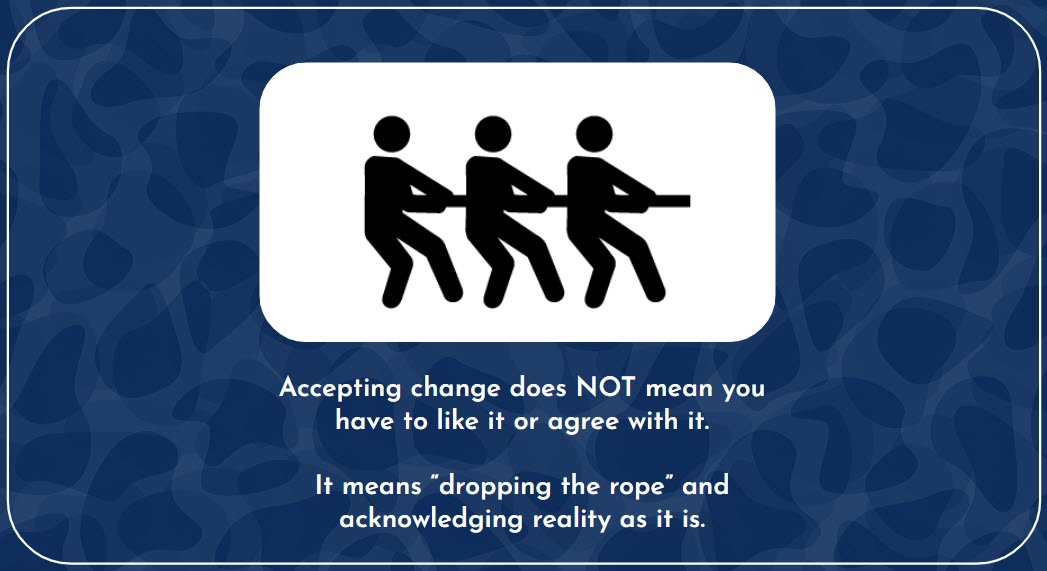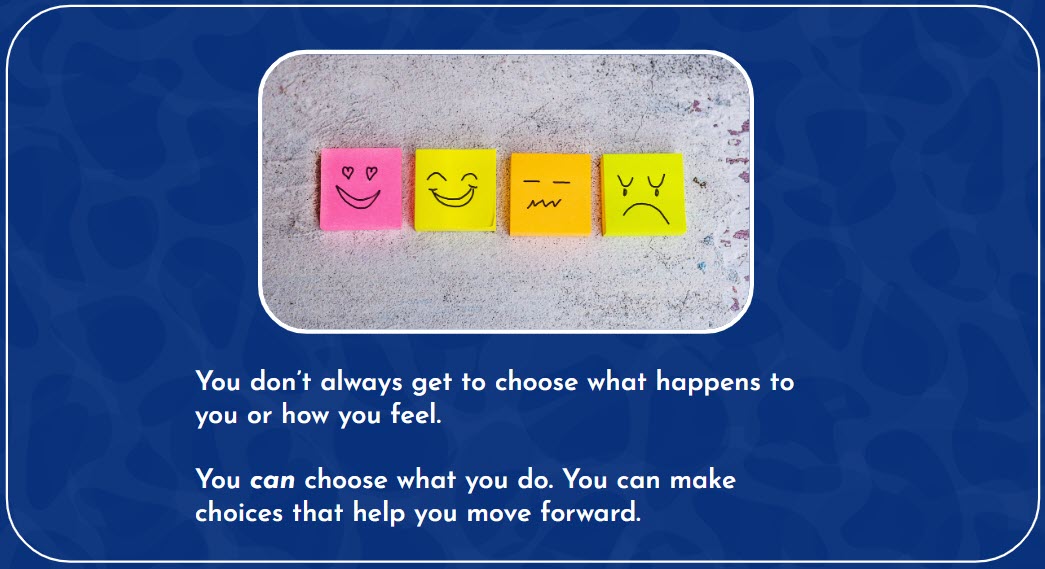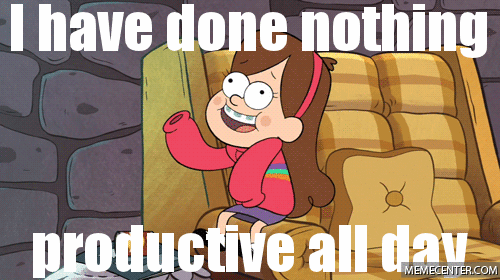Finding peace of mind when your company is acquired

In November, the company I had been working for (VMware) was acquired by another company (Broadcom). This is my second time going through a company acquisition. My first experience was when my previous employer SaltStack was acquired by VMware in 2020.
While there were some key differences between my experiences with both acquisitions, there were also some commonalities. One of the commonalities is that every acquisition brings change-related stress. In this blog post, I’ll focus more on the common patterns that cause stress in most acquisitions and provide some of my personal tips and strategies for finding peace of mind with the changes that occur when your company is acquired.
Coping with a layoff
By far, the most difficult part of an acquisition for me is the stress around layoffs. If you’re the one who is selected for a layoff, my advice to you is to not take the layoff personally. I’ve been laid off in the past and I’ve also been one of the people who survived a round of layoffs. Those experiences have taught me to never to take a layoff personally.
Most of the time, the decision to lay off employees is caused by circumstances that were well beyond your personal control, such as larger market forces and other business calculations. Usually, upper management is given a goal or target for the number of employees to cut in order to make the acquisition meet a certain operating margin or level of profitability. The teams or product lines targeted for cuts are based on larger strategic decisions at the organizational level.
Once targets are set, upper level management need to make tough decisions about who gets cut, often without insight from middle management. For that reason, I find that work performance only plays a tiny role, if it plays any role at all. Often, the decisions about who gets laid off don’t seem to make sense from my perspective as an individual contributor. I am often baffled by who gets cut precisely because the layoffs often impact people who are high performers or business critical. With this last acquisition, I couldn’t find much rhyme or reason in who was cut and who was kept on my team. It almost felt like the decisions were made by throwing darts at a dart board.
Although the apparent randomness can be very disconcerting, for me, it helps to recognize that work performance isn’t usually the main factor in the decision-making process. I wish reality were different sometimes. I wish these decisions were made because of factors that are in my locus of control (like individual or team performance) instead of forces that are out of my control (like luck or trends in the market). But the reality that it is somewhat luck-based or out of my control.
Again, the key here is to not take a layoff personally. It was never in your control. It was always a gravity problem, an immovable force or circumstance that is beyond your power to change.
In terms of strategies for coping with layoffs, I enjoyed a work-sponsored group session I attended where the lead therapist shared this insight:

Coping as one of the survivors
If you’re not one of the ones who was laid off, you get to experience the challenges of surviving a round of layoffs. Initially, you might feel a sense of guilt or shame because you were spared when other good people were not. Similar to my advice for dealing with a layoff, I encourage you to remember that the decision to retain you was not something that was in your locus of control and you shouldn’t feel guilt or shame for a decision that you had no power to influence.
You might also begin to feel a sense of loss or grief for the coworkers who will no longer be on your team. In this last layoff, I lost some of my favorite coworkers and key collaborators. That loss is real and it’s okay to mourn the loss of a cherished relationship. My advice for coping with the loss is to express gratitude to my departing coworkers for their hard work, talent, and friendship.
On my team, we have a tradition of hosting LinkedIn parties before pending departure dates. We invite anyone to attend regardless of their layoff status. At the party, we endorse each other for skills on their profile and write a recommendation for everyone who attended. It’s a chance to really tell a coworker how much you enjoyed working them and the strengths you saw in them. It’s also a gift that keeps giving by assisting them in any future job hunts.
Beyond that, sometimes it helps me to get people’s contact information to hopefully stay in touch over time. I like to collect mailing addresses to send people a holiday card at the end of the year or a thank you card if the holidays are too far away.
The upshot is that (cough) there’s a chance some of your less favorite coworkers get laid off as well, so you can secretly rejoice in that fact, too! Schadenfreude can feel good sometimes!
After your coworkers have departed, the other emotions you might feel are frustration and anxiety about all the work that remains for you to deal with, only now with fewer helping hands. My favorite comic that expresses this feeling comes from Work Chronicles:

Now you will have more work to do, usually with less compensation for the added work. For myself, I have found that my workload has tripled and I definitely feel the pinch from that change.
It sucks, but the only way through it is to keep moving forward. What this means is that you’ll have to figure out either how to cover for their critical functions and/or decide how to set boundaries for what will and won’t do as a team. It’s a good opportunity to evaluate what your new capacity will be and how you can refocus on the highest priority tasks.
Adapting to a new company’s culture and procedures
When your company is acquired, it often feels a little like getting a new job, even though your basic role and responsibilities are generally the same. Just like with a new job, you often have to fill out a bunch of forms and migrate to a new set of tools. You also have to adapt to the new company culture and company policies. Some of these changes will be welcome and some will not.
For me, I like my new company’s approach to lean, flat management and its obsessive focus on bottom-line results. The old company was overly bureaucratic and unwilling to make tough cuts or decisions even when they were clearly necessary. And it certainly doesn’t hurt my feelings that my RSUs have quadrupled in value since the acquisition.
But there have been some really tough and painful changes, too. The hardest part for me has been the end of remote work. Although some of my worst fears haven’t been realized (such as the negative impact to my personal exercise routine), it has nevertheless upended my lifestyle and has reduced my overall productivity and well-being. I enjoy being with my coworkers in person again, but overall the losses outweigh the gains.
The second hardest part for me has been getting used to a company culture that is overall less caring and supportive of its workforce that manifests in various ways. The new company has a strong bias for quick action and operates with a more top-down, unilateral approach that occasionally borders on blunt or brutish. It has been frustrating to have little control or ability to provide feedback on important decisions that sometimes have negative consequences that could have been prevented. I don’t necessarily miss the overly paternalistic culture of the old company, but the new company is so starkly different that it is occasionally jarring. And I will truthfully never stop yearning for the young, scrappy, and hungry culture that existed at our little startup before we were acquired by VMware.
My advice for adapting to the new culture and procedures is to use some additional advice I received in the group therapy session I mentioned earlier:

One technique is to practice mindfulness and emotional awareness. Without judgment, notice what is going on in your mental and emotional state, such as lower back pain, muscle tension, or feelings of disappointment. Try to be curious about what is causing these emotions to get at their root cause.
From there, it’s helpful to reframe how you think about change and choose better, more helpful thoughts. For me, it sometimes helps to write a temporary mantra that I repeat for awhile to get used to the change, such as:
There are challenges I can’t fully control, but I can still choose how I show up at work and how I take care of myself.
For me, I noticed that in the month after the acquisition there was such a constant deluge of daily change (both pleasant and unpleasant) that my limbic system started to develop an unconscious stress response just from showing up at work. My solution was to take a 2-week vacation during the winter holiday season to fully disconnect and stop thinking about work. When I returned in January, my limbic system had fortunately had a long-enough break from work that it had reset itself and no longer felt the automatic stress response any more.
Coping with a temporary lack of tasks to do
In the months following an acquisition, most companies need a typically lengthy period of time where the leadership teams meet together and develop new strategies and systems for integrating the two work processes. For an individual contributor, this often means that you don’t have any work to do and that you’re blocked until key decisions are made.
This sudden lack of available tasks to work on can cause uncomfortable feelings in some people. It’s difficult to be patient and wait for decisions to be made, especially when you know that the future likely holds a sudden increase in work after the decisions are made. Not having clarity about the future is most definitely frustrating.
It’s also difficult when you don’t have work to do that will distract you while you’re waiting for decisions to be made. Some of the more toxic elements of our capitalist culture tells us that we aren’t valuable as an employee or as an individual if we’re not being productive. You should try to avoid seeing yourself that way. Don’t feel guilty or anxious that there is less work for you to do. Just know that it won’t always be that way.

For me, I’ve used this opportunity to try to be less of a workaholic and reduce the degree to which my job and work impact my self-esteem, my personal identity, and my general mood. I’m trying to focus more on my hobbies and connecting with friends. Undoing decades of toxic workaholic cognitive habits take time, but I’m learning how to be better day by day.
That being said, if you insist on finding something productive to pass the time and keep busy, I recommend focusing on onboarding tasks, professional development tasks, connecting with co-workers socially to build team cohesion, or working on tech debt. For better or for worse, the lull in work is definitely temporary. If you aren’t busy, it’s more likely the calm before the coming storm.
Conclusion
Acquisitions are challenging, difficult, and emotionally destabilizing. But with change comes new opportunities for growth and self-reflection. I have confidence that you will be resilient and make it through the crucible, emerging as a better person for these experiences in the end.
